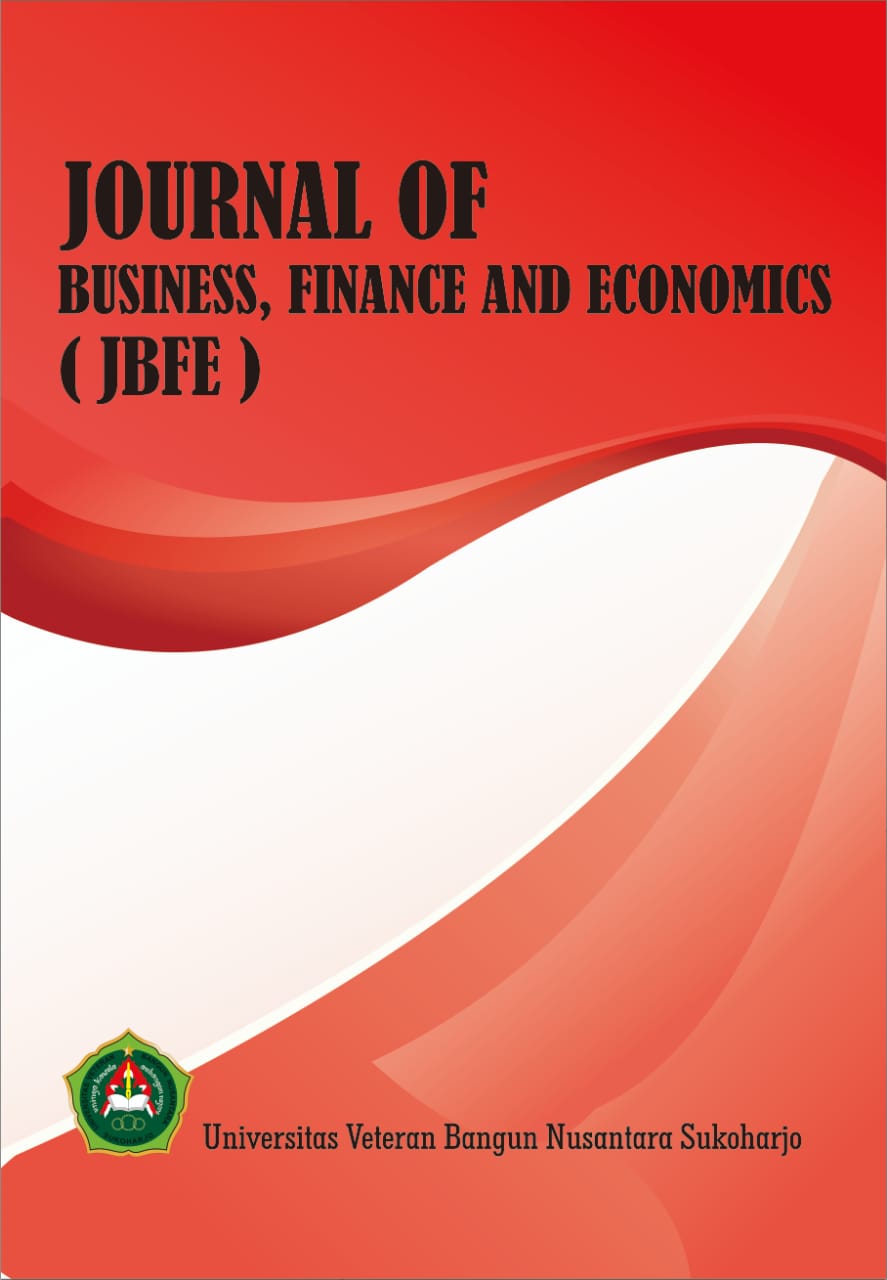Hubungan Literasi Keuangan, Overconfidence dan Persepsi Risiko pada Keputusan Investasi Mahasiswa Universitas Udayana
DOI:
https://doi.org/10.32585/jbfe.v6i1.6555Keywords:
Financial Literacy, Overconfidence, Risk Perception, Investment DecisionsAbstract
The growth of young investors in Indonesia continues to increase every year. However, the low level of financial literacy in Indonesia is a major challenge for students in making investment decisions. This study aims to analyze the relationship between financial literacy, overconfidence, and risk perception on investment decisions of Udayana University students. A quantitative approach was used where data were collected through questionnaires with 100 respondents who had securities accounts and had attended capital market seminars. Multiple linear regression analysis was used to test the relationship between variables. The results showed that financial literacy, overconfidence, and risk perception had a positive and significant relationship to investment decisions. These findings support the Behavioral Finance Theory in the context of investment, and are expected to provide insight to improve financial literacy and understanding of investment risks among students, encouraging more rational and informed decisions.
Downloads
References
Adil, M., Singh, Y., & Shamim Ansari, M. (2022). How financial literacy moderate the association between behaviour biases and investment decision? Asian Journal of Accounting, 7(1). https://doi.org/10.1108/AJAR
Ajzen, I. (1991). The theory of planned behavior. Organizational Behavior and Human Decision Processes, 50(2), 179–211. https://doi.org/10.1016/0749 5978(91)90020-T
Ajzen, I., & Fishbein, M. (2005). The Influence of Attitudes on Behavior (B. T. D. Albarracín & M. P. Z. Johnson, Eds.; p. 173). Mahwah, NJ;Lawrence Erlbaum Associates. https://www.researchgate.net/publication/264000974
Asandimitra, N., & Novianggie, V. (2019). The Influence of Behavioral Bias, Cognitive Bias, and Emotional Bias on Investment Decision for College Students with Financial Literacy as the Moderating Variable. International Journal of Academic Research in Accounting, Finance and Management Sciences, 9(2), 92–107. https://doi.org/10.6007/IJARAFMS/v9-i2/6044
Badriatin, T., Rinandiyana, L. R., & Marino, W. S. (2022). Persepsi Risiko dan Sikap Toleransi Risiko terhadap Keputusan Investasi Mahasiswa. 20(2). https://doi.org/10.31294/jp.v17i2
Baihaqqy, M. R. I., Disman, Nugraha, Sari, M., & Ikhsan, S. (2020). The Effect of Financial Literacy on the Investment Decision. Budapest International Research and Critics Institute-Journal (BIRCI-Journal), 3(4), 3073–3083. https://doi.org/10.33258/birci.v3i4.1333
Bandura, A. (1977). Self-efficacy: Toward a Unifying Theory of Behavioral Change. Psychological Review, 84(2), 191–215. https://doi.org/10.1037/0033-295X.84.2.191
Barberis, N., & Thaler, R. (2003). “A SURVEY OF BEHAVIORAL FINANCE” (G. M. Constantinides, M. Harris, & R. Stulz, Eds.). Elsevier.
Budiarto, A., & Susanti. (2017). PENGARUH FINANCIAL LITERACY, OVERCONFIDENCE, REGRET AVERSION BIAS, DAN RISK TOLERANCE TERHADAP KEPUTUSAN INVESTASI (Studi pada investor PT. Sucorinvest Central Gani Galeri Investasi BEI Universitas Negeri Surabaya). Jurnal Ilmu Manajemen, 5(2). https://doi.org/10.26740/jim.v13n1
Darmayanti, N. P. A., Artini, L. G. S., & Suryantini, N. P. S. (2023). LITERASI KEUANGAN DAN PERAN MEDIASI BIAS PERILAKU TERHADAP KEPUTUSAN INVESTASI INDIVIDU. E-JURNAL EKONOMI DAN BISNIS UNIVERSITAS UDAYANA, 12(11). https://doi.org/10.24843/EEB.2023.v12.i11.p03
Downloads
Published
How to Cite
Issue
Section
License
Copyright (c) 2025 Journal of Business, Finance, and Economics (JBFE)

This work is licensed under a Creative Commons Attribution-ShareAlike 4.0 International License.
Authors who publish with the Journal Of Business, Finance, and Economics (JBFE) agree to the following terms:
- Authors retain copyright and grant the journal the right of first publication with the work simultaneously licensed under a Creative Commons Attribution License (CC BY-SA 4.0) that allows others to share the work with an acknowledgment of the work's authorship and initial publication in this journal.
- Authors are able to enter into separate, additional contractual arrangements for the non-exclusive distribution of the journal's published version of the work (e.g., post it to an institutional repository or publish it in a book), with an acknowledgment of its initial publication in this journal.
- Authors are permitted and encouraged to post their work online (e.g., in institutional repositories or on their website) prior to and during the submission process, as it can lead to productive exchanges, as well as earlier and greater citation of published work.














